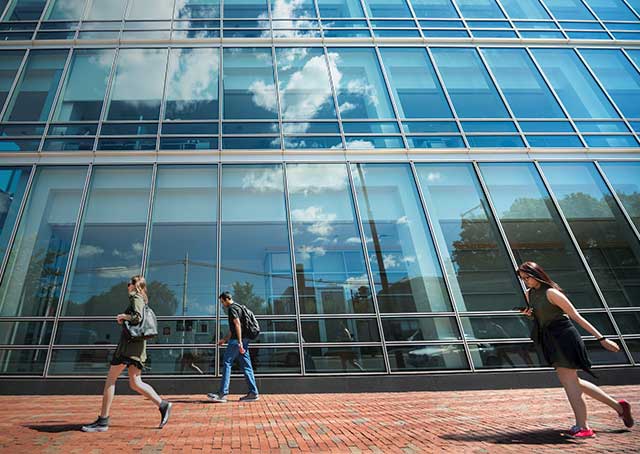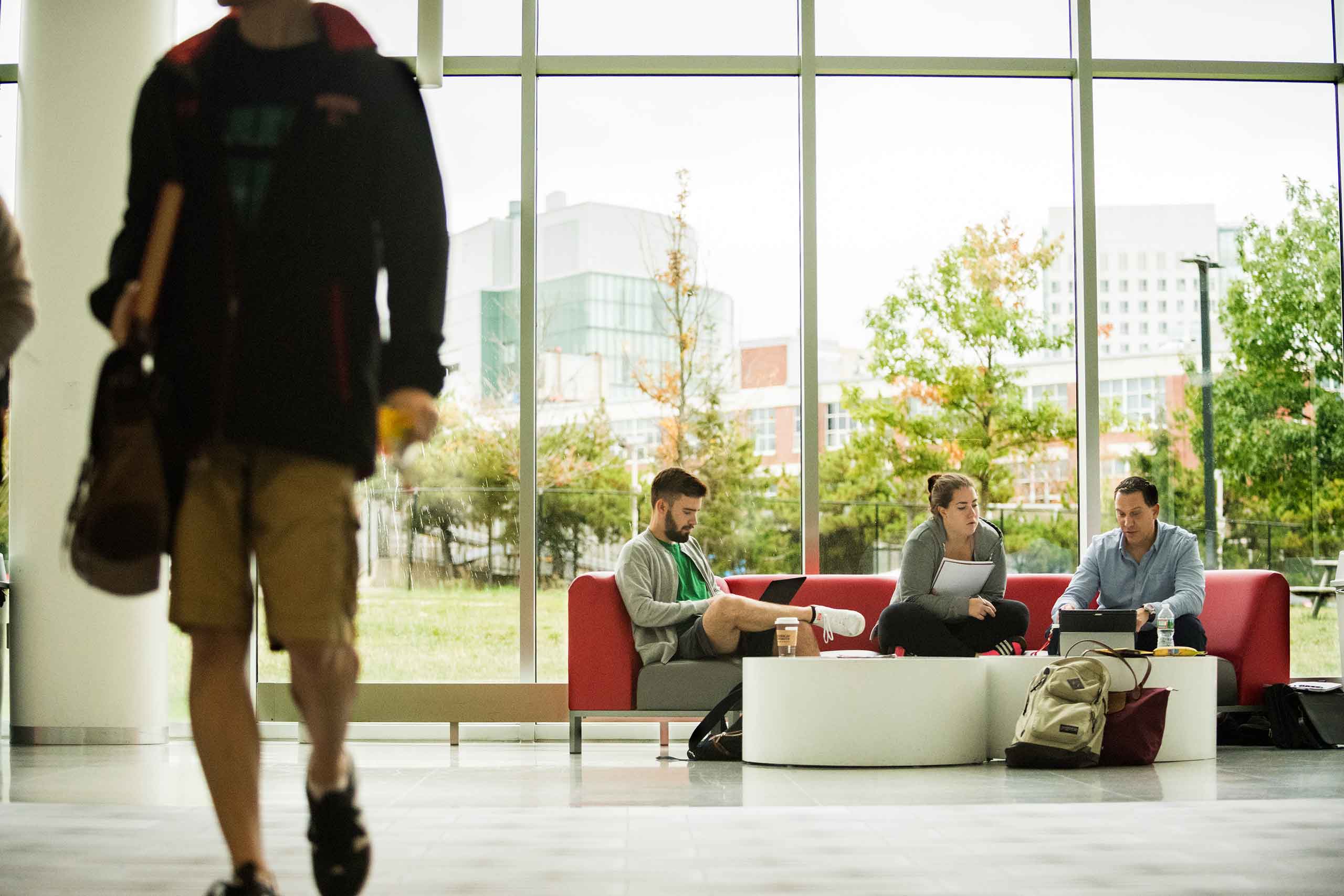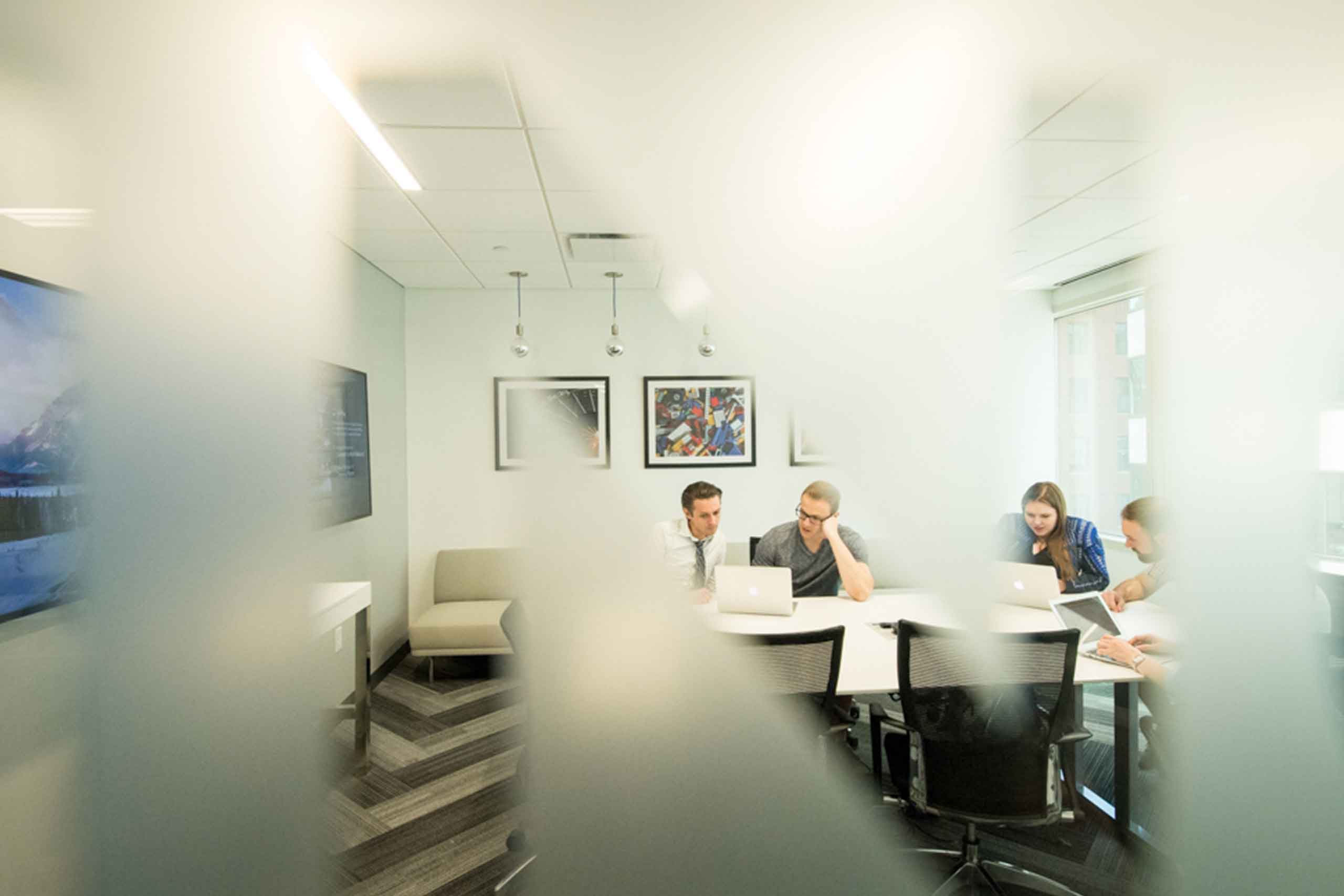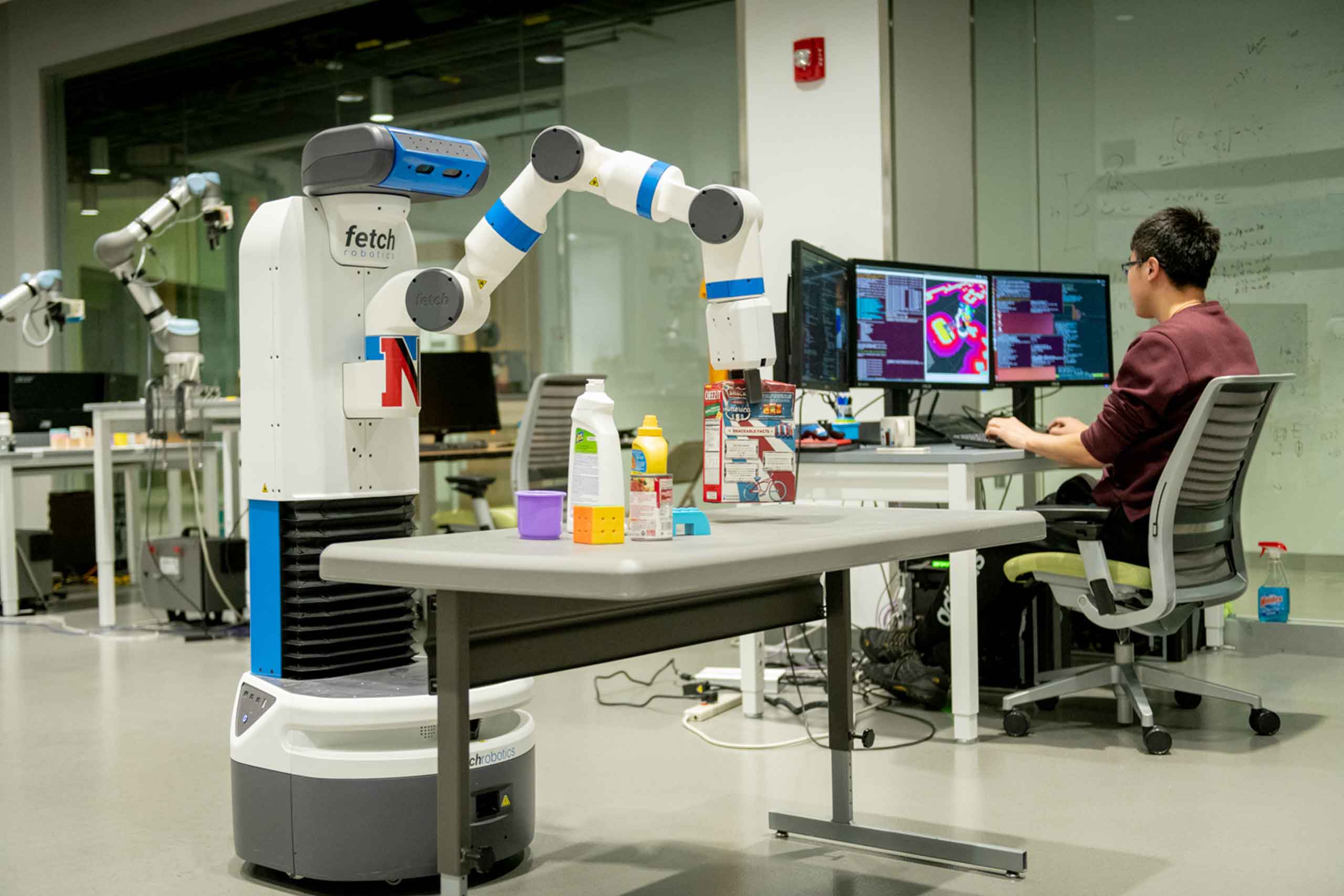





In the early 1980s, Northeastern University created one of the nation’s first colleges dedicated to the field of computer science (CS). Khoury College of Computer Sciences marked its 40th anniversary in 2023 and through those years has remained a national leader in CS education and research—continuing to break new ground to solve real-world problems.
In the early 1980s, Northeastern University created one of the nation’s first colleges dedicated to the field of computer science (CS). Khoury College of Computer Sciences marked its 40th anniversary in 2023 and through those years has remained a national leader in CS education and research—continuing to break new ground to solve real-world problems.
To make sure CS really is for everyone, at Khoury every person is dedicated—and every program is designed—to further our mission. Khoury College aims to:
It all starts with CS + YOUCS is where creativity and science come together—where computing, data, and network solutions bring great ideas to life. What happens when people with diverse backgrounds and goals pursue CS? New tools that work for everyone. Innovative software that improves how we interact. Connected systems that shape our world for the better. Khoury College is for anyone who wants to explore computer science. That’s the power of CS. That’s the power of diverse thought. That’s the power of CS + YOU.
To make sure CS really is for everyone, at Khoury every person is dedicated—and every program is designed—to further our mission. Khoury College aims to:
It all starts with CS + YOUCS is where creativity and science come together—where computing, data, and network solutions bring great ideas to life. What happens when people with diverse backgrounds and goals pursue CS? New tools that work for everyone. Innovative software that improves how we interact. Connected systems that shape our world for the better. Khoury College is for anyone who wants to explore computer science. That’s the power of CS. That’s the power of diverse thought. That’s the power of CS + YOU.
In the early 1980s, Northeastern University created one of the nation’s first colleges dedicated to the field of computer science (CS). Khoury College of Computer Sciences marked its 40th anniversary in 2023 and through those years has remained a national leader in CS education and research—continuing to break new ground to solve real-world problems.
In the early 1980s, Northeastern University created one of the nation’s first colleges dedicated to the field of computer science (CS). Khoury College of Computer Sciences marked its 40th anniversary in 2023 and through those years has remained a national leader in CS education and research—continuing to break new ground to solve real-world problems.
To make sure CS really is for everyone, at Khoury every person is dedicated—and every program is designed—to further our mission. Khoury College aims to:
It all starts with CS + YOUCS is where creativity and science come together—where computing, data, and network solutions bring great ideas to life. What happens when people with diverse backgrounds and goals pursue CS? New tools that work for everyone. Innovative software that improves how we interact. Connected systems that shape our world for the better. Khoury College is for anyone who wants to explore computer science. That’s the power of CS. That’s the power of diverse thought. That’s the power of CS + YOU.
To make sure CS really is for everyone, at Khoury every person is dedicated—and every program is designed—to further our mission. Khoury College aims to:
It all starts with CS + YOUCS is where creativity and science come together—where computing, data, and network solutions bring great ideas to life. What happens when people with diverse backgrounds and goals pursue CS? New tools that work for everyone. Innovative software that improves how we interact. Connected systems that shape our world for the better. Khoury College is for anyone who wants to explore computer science. That’s the power of CS. That’s the power of diverse thought. That’s the power of CS + YOU.











